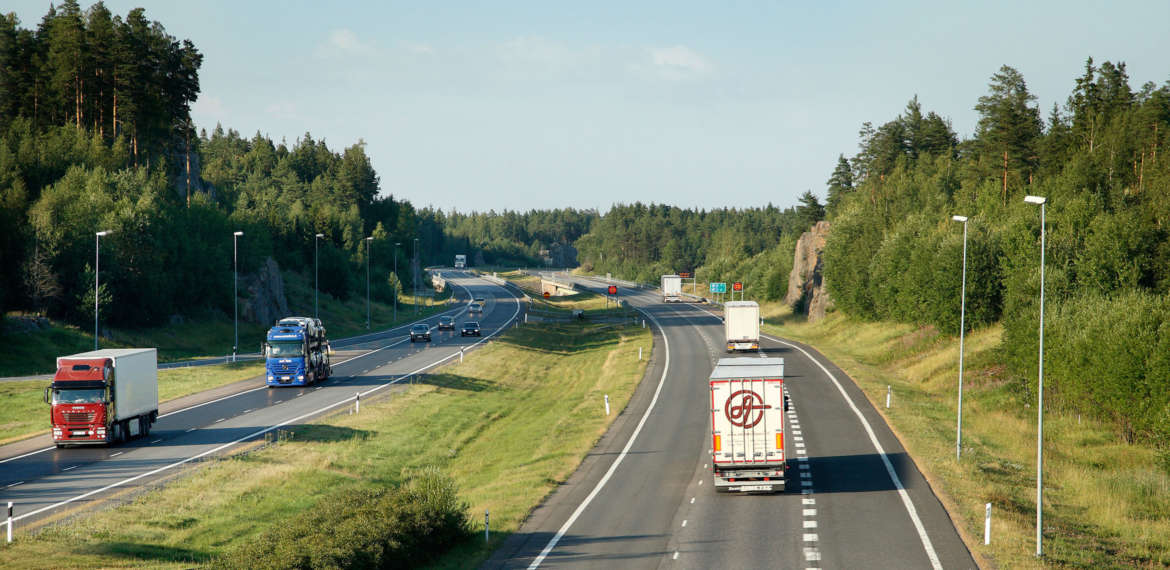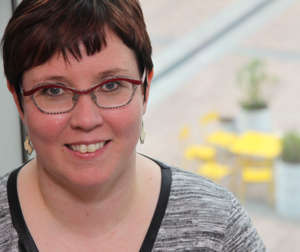European Parliament prepares the terms for smart traffic
The European Parliament is preparing new solutions for smart traffic. Robot trucks are already being expected and their arrival is anticipated. Brussels is also getting ready for the automation of maritime traffic.

The massive buildings of the European Parliament with guards and access passes are frighteningly solemn. Member of the European Parliament Merja Kyllönen’s (left alliance) room is filled with a simultaneously laid-back and energetic atmosphere. She has brought the spirit of her home municipality Suomussalmi to Brussels.

We talk about road tolls. They were buried during both Ms Kyllönen’s and Anne Berner’s terms as the Minister of Transport. The time was not ripe for them. In the European Parliament, European Commissioner for Transport Violeta Bulc is, however, planning to launch electronic road tolls that concern all of Europe. Luckily Ms Kyllönen is familiar with the roads and distances in Finland, including those in her home region. She sits in the right committee to be able to affect the matter.
”It always concerns a customised system for each European country. We are now determining the framework conditions and rules on what kind of a road toll system would be supported by all of the EU. Without big decisions we can’t achieve emission reductions”, Merja Kyllönen says. Solutions are sought from the climate point of view and based on the Paris Agreement.
One of the solutions, Eurovignette, or the road toll system for heavy goods vehicles is finally arriving in Finland, too.
In the back row with the ears open
As a reporter, I get a seat in the back row in the European Parliament’s Transport and Tourism Committee (TRAN). I put on the headphones and find the button for interpretation. The themes are the same that I discussed with Ms Kyllönen. Common rules are being created for the inspections and safety equipment of passenger and ro-ro vessels. In Finland, the requirements are already met.
”We had a near-miss case”, Ms Kyllönen says. ”A proposal was made to add to the legislation a regulation that would have required all vessels, including cable ferries, water taxis and water buses, to collect and control passenger information. We felt that the system is too heavy for Sweden and Finland and managed to stop it.”
”It’s just one example of the possibility to influence. You need to be in the right place at the right time and present good arguments.”
Smart technology for climate
The EU now focuses especially on the development of intelligent systems. The goal of smart traffic is to speed up transports and reduce emissions. Smart traffic is a business. Why is EU’s contribution needed?
”Because of the climate point of view”, Ms Kyllönen says. There’s a will to utilise technology and know-how from the point of view of reduction of emissions.

Smart traffic means, for example, electronic logistics and robot cars. In platoon driving there would be a driver only in the first truck and the others would follow it. And maritime traffic can be automated, too.
”In that respect the future is wide open”, says Kai Keski-Korhonen, lobbyist and EU consultant.
He is part of a system through which the Finns can influence matters in the European Parliament. The Commission makes the proposals which are then handled by the Parliament. An approval of the Council of the European Union is also needed. An important role is played by rapporteurs who guide a report throughout its process, as well as trilogues, i.e. tripartite meetings attended by representatives of the European Parliament, the Council and the Commission.
Lobbyists and stakeholders know that right now is the time to influence the automation of maritime traffic. They offer solutions and highlight the effects of legislation. The rapporteur who sits on the case has a lot of power and really needs the information, right now and not afterwards.
For the climate – for real
The general picture suggests that the EU is serious about the climate issues and at least Ms Kyllönen is. Finland has taken a political stance that traffic will bear the heaviest burden in the country’s goals to reduce emissions.
”In a perfect world you could think that when you press a button, the next day the transport entrepreneurs would have better equipment, but it doesn’t work like that. And especially not in Finland. It’s important to make pan-European decisions and avoid in them such impacts as a result of which e.g. Finns would lose while Swedes and Estonians would succeed.”
Text and photos Sini Silván
